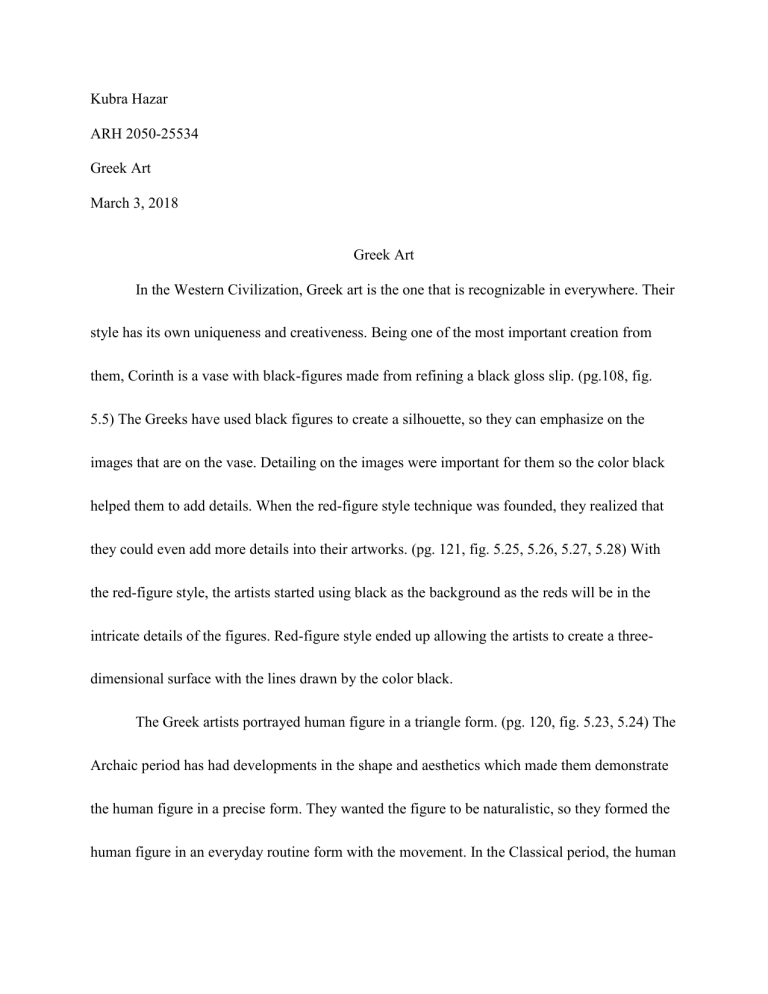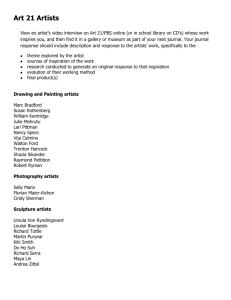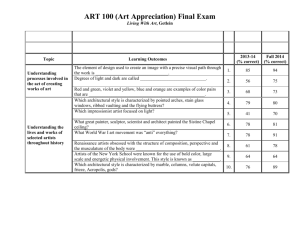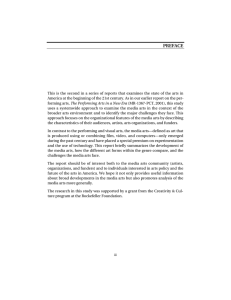
Kubra Hazar ARH 2050-25534 Greek Art March 3, 2018 Greek Art In the Western Civilization, Greek art is the one that is recognizable in everywhere. Their style has its own uniqueness and creativeness. Being one of the most important creation from them, Corinth is a vase with black-figures made from refining a black gloss slip. (pg.108, fig. 5.5) The Greeks have used black figures to create a silhouette, so they can emphasize on the images that are on the vase. Detailing on the images were important for them so the color black helped them to add details. When the red-figure style technique was founded, they realized that they could even add more details into their artworks. (pg. 121, fig. 5.25, 5.26, 5.27, 5.28) With the red-figure style, the artists started using black as the background as the reds will be in the intricate details of the figures. Red-figure style ended up allowing the artists to create a threedimensional surface with the lines drawn by the color black. The Greek artists portrayed human figure in a triangle form. (pg. 120, fig. 5.23, 5.24) The Archaic period has had developments in the shape and aesthetics which made them demonstrate the human figure in a precise form. They wanted the figure to be naturalistic, so they formed the human figure in an everyday routine form with the movement. In the Classical period, the human figure started appeared as it is thinking. (pg. 124, fig. 5.29, 5.30, 5.33, 5.34) The figure was in a standing position rather than entertaining the viewer. The artists had more precise proportions in their sculptures. The figures were more inactive, genuine and quiet which made it more naturalistic. The figure ignores the viewer and he or she is in their own world not looking at anybody. In the Hellenistic period, the artists religion and beliefs took over to the human figure. (pg. 155, fig. 5.71) The sculptures were all about emotion. The tragedies, anger, happiness, every other emotion started to show in the artist’s human figure. The human figure became really detailed showing every flaw, inaccuracy in the human body as the artists believed in realistic figures. The artists started to portray people that are doing activities. Works Cited Davies, Penelope J.E., et al. Janson’s History of Art: The Western Tradition. 8th ed., vol. 1, Laurence King Publishing, 2016. Print.






